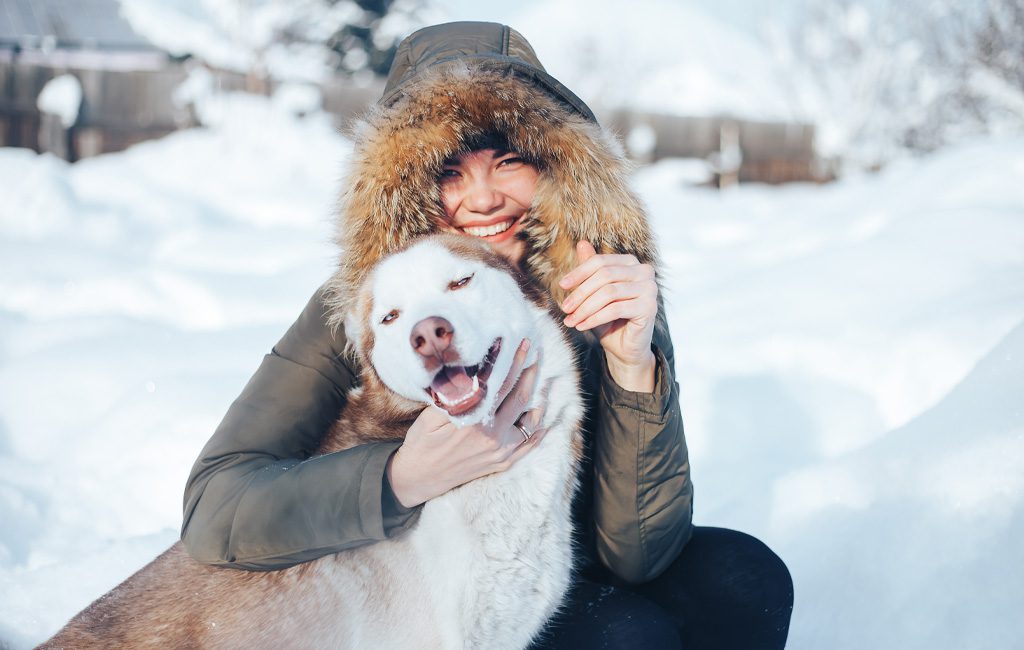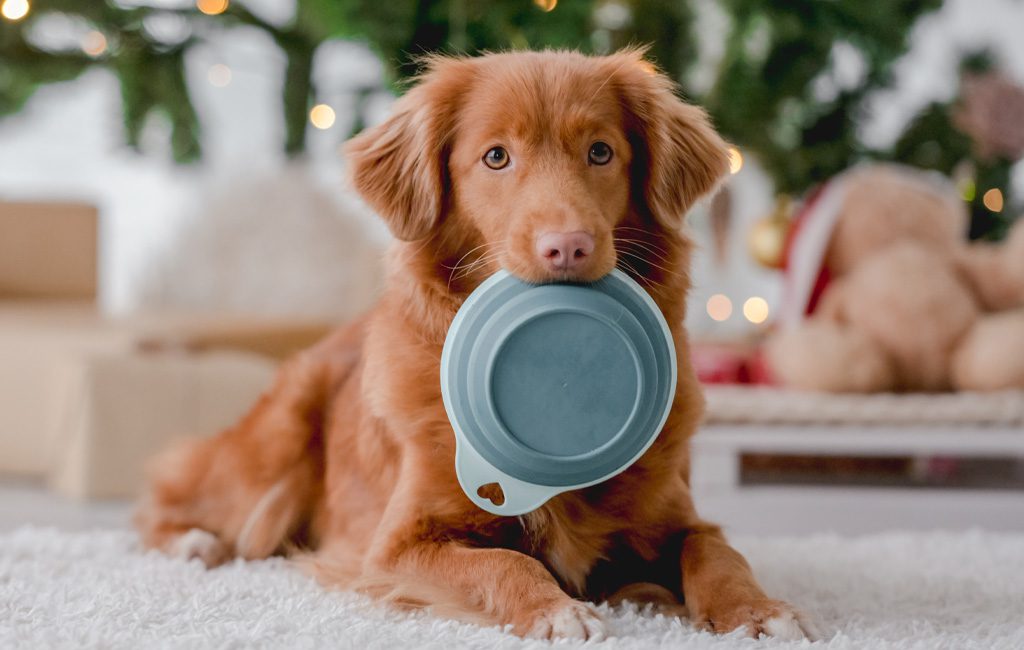Signs of Dog Dehydration in Raleigh, NC
Dogs, like any living creature that needs water to survive, when healthy, will drink enough water to keep his body properly maintained. Water is necessary for the important systems of a dog’s body to function properly. When a dog doesn’t have enough water to remain hydrated, a dangerous condition known as dehydration develops. This article will discuss the signs of dog dehydration, what you should know, and what you should do to make sure your dog doesn’t become dehydrated.
What Is Dehydration
A dog becomes dehydrated when his body loses more water than it takes in. Losing and gaining water happens through normal bodily functions, such as:
- Evaporation through the paws
- Breathing and panting
- Urination and defecation
While a dog gains water through drinking and from the water content in his food. Canned food will yield more water than kibble, but even dry kibble will have some hydration benefit. When a dog doesn’t take in enough water to compensate for the water that’s naturally lost, there’s a reduction in blood flow which impacts the delivery of oxygen to tissue and organs. A dehydrated dog will also have a loss of essential electrolytes that have important functions.
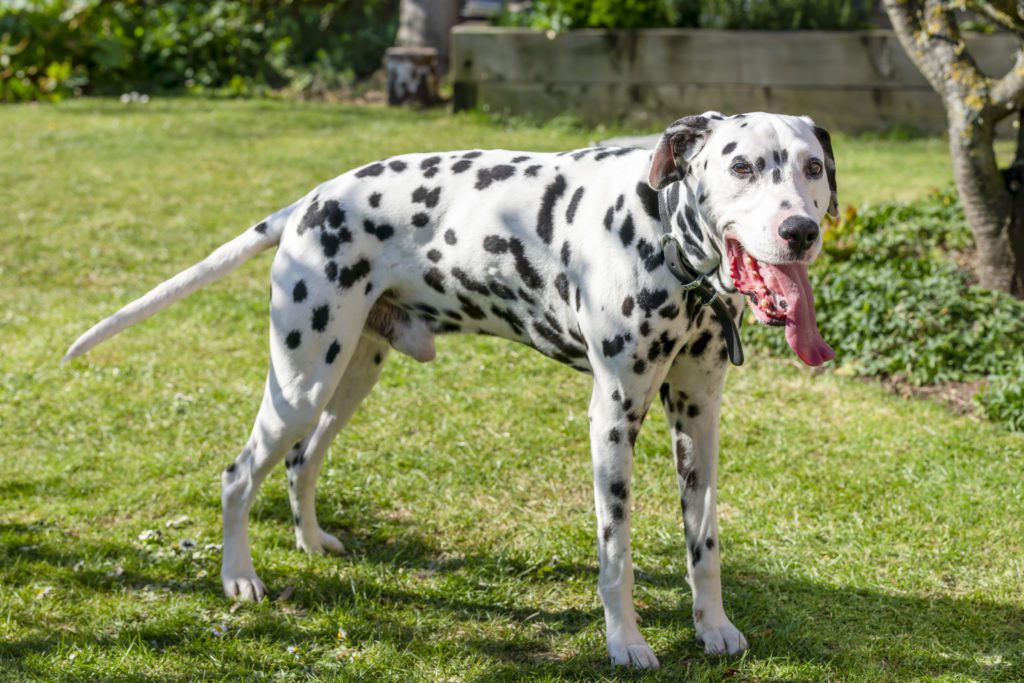
What Causes Dog Dehydration
There are many ways a dog can become dehydrated. In the simplest form, it’s the result of a dog not having proper access to water. It can also be a result of a dog having water access, but not drinking enough. Other common reasons for dehydration include:
- Illness with fever
- Acute vomiting and/or diarrhea
- Diabetes
- Cancer (some types)
- Kidney disease
- Heatstroke
There are also some dogs that are more at risk of dehydration than others, including:
- Nursing mothers
- Puppies
- Toy dog breeds
- Seniors
Signs Of Dog Dehydration
In cases of dehydration, you may see some of these symptoms in your dog:
- Decrease in activity/energy
- Difficulty standing
- Weakness
- Loss of appetite
- Panting
- Dry nose
- Gums are dry, sticky
- Thickening saliva
- Vomiting (may or may not include diarrhea)
- Eyes are sunken and dry-looking
- Shivering
- Dark urine
- Loss of skin elasticity
- Unconsciousness
- Death (in extreme cases)
How To Tell If a Dog Is Dehydrated
There are two simple methods for determining if your dog is dehydrated. You should learn how to do them when you know your dog is well hydrated so you know the difference. Take note, if your dog is one of the wrinkly skinned breeds, it’s important to know what’s normal for your dog’s skin when hydrated.
One method is to grab a small bit of skin between the shoulders and pull upward for an inch or so. Then release it. In a well-hydrated dog, the skin should snap back into place. In a dehydrated dog, it will take the skin longer to return to normal.
The second method it to check your dog’s gums to see if they are dry and sticky and for capillary refill time. Gently press with one finger against your dog’s gum then remove it. If your dog is well-hydrated, the pressed spot will appear white for a moment, then immediately return to pink. It takes much longer to go back to pink and a dehydrated dog.
What To Do If Your Dog Is Dehydrated
If you suspect your dog is dehydrated, the first thing you want to do is contact your veterinarian for guidance. This is important, because attempts at hydrating your dog could backfire if he’s at the point where giving him water causes him to vomit. That would worsen the situation. Call your veterinarian first and follow his recommendations.
If your dog has mild dehydration, give him clean water as soon as possible. Giving him water with electrolytes, provided you’ve checked with your vet, can be beneficial. But if your dog has moderate to severe dehydration, you’ll need to take him to your veterinarian. This is an emergency situation. Your dog will be assessed, and your veterinarian will determine the best course to rehydrate him. Fluids will be given either under the skin or through an IV. And the worse your dog’s condition, the longer it will take to rehydrate him. He’ll also need to remain at the veterinarian until he is well.
Preventing Dog Dehydration
You’ll want to prevent dehydration in your dog, and the best way to do that is by making sure he always has plenty of clean water available. Make sure you also keep fresh, clean water for him when he goes outside for playtime and exercise. Replenish the outdoor water every day with fresh water and not just a top-off. Bugs will get in leftover water and may lay eggs in it. Your dog needs clean water. If your dog just doesn’t drink enough, you’ll have to watch him to make sure he gets enough fluid. You may offer ice cubes for him to chew, or you could try flavoring the water with unsalted bone broth.
His water intake needs won’t remain constant. When it’s hot or he plays or works a lot, he will need more water on those days. In general, dogs need about an ounce of water for each pound of his body weight. But your veterinarian can advise you based on your dog’s specifics in age, health, breed, and weight.
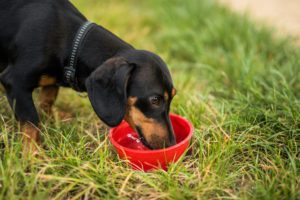
Conclusion
Your dog needs fresh, clean water to survive. And the best way to keep him healthy is to make sure he has free access to all the water he wants. Dehydration is a serious condition, and in the worst case, your dog could die from a simple lack of water. Make sure he takes in enough to replenish the water he expends through the day. Keep fresh water available for outdoor playtime, and if you’re going on a long car ride, take a bowl you can fill for him. Don’t forget to have a leash in the car so he can get out and drink. Make sure dogs who don’t drink a lot get enough water to keep them healthy. The very best remedy for dog dehydration is to prevent it from occurring in the first place. Consult with your veterinarian to make sure you provide the very best care for your canine friend.
If your dog is dehydrated in Raleigh or you have any questions, please give our vet a call at (919) 488-5300 today.
Recent Posts
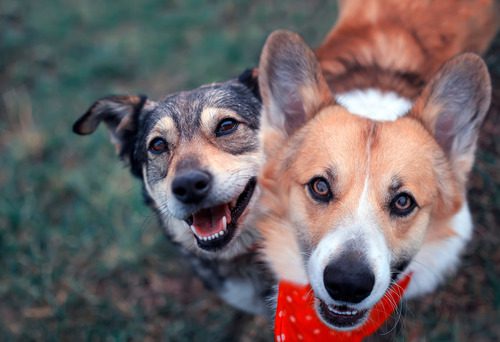
Top 5 Dog Parks in Raleigh, NC

Why Doesn’t My Cat Purr?
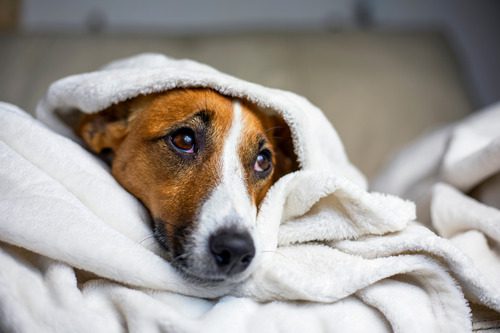
Can My Dog Catch COVID?
About Us
At Companion Animal Hospital of Wakefield, our veterinarians in Raleigh, NC, provide better care for your pets. As members of your family, cats and dogs deserve the highest level of medicine with the most compassion. That’s why we put a strong emphasis on personalized care for your pet and client education for you. We believe that when we take the time to help you thoroughly understand your pet’s health, we’re able to make the best decisions for their care together.

